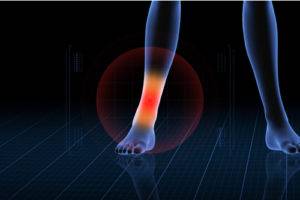Legally Reviewed By:
Brian P. Gabriel, Esquire
 Most people are familiar with the concept of a GPS monitoring bracelet that tracks the wearer’s location at all times and can’t be removed. GPS monitors are usually ankle bracelets that the court orders a defendant to wear when they’re on probation, parole, or house arrest. The judge may order a GPS monitoring device before or after a defendant goes on trial for a criminal charge in Florida.
Most people are familiar with the concept of a GPS monitoring bracelet that tracks the wearer’s location at all times and can’t be removed. GPS monitors are usually ankle bracelets that the court orders a defendant to wear when they’re on probation, parole, or house arrest. The judge may order a GPS monitoring device before or after a defendant goes on trial for a criminal charge in Florida.
Judges may order ankle bracelets in lieu of or in addition to harsher penalties. Often, defendants prefer the limitations of these devices to spending time in jail. If it’s possible to wear a GPS ankle bracelet upon a conviction, your defense attorney will likely make a case for the more lenient sentence. Still, wearing a monitoring device is no simple matter.
How do Ankle Monitors with GPS Work?
Ankle monitors are electronic devices equipped with GPS technology. They’re strapped around your ankle and can’t be removed by the wearer. The tamper-proof bracelets must be worn for as long as the judge orders. These devices use radio frequency signals to communicate back to a monitoring station. They may be programmed to allow wearers to roam freely within a certain perimeter, and alert the monitoring station if the wearer goes outside of that area.
When defendants try to tamper with ankle monitors, these devices send a signal to the law enforcement agencies monitoring them that may eventually lead to an arrest. In Florida, those who are ordered to wear ankle monitors are offenders sentenced to community control.
When Might I Be Ordered to Wear a GPS Monitoring Device in Florida?
A judge may order a criminal offender to wear a monitoring device in addition to or in place of a harsher sentence. Some common crimes that result in being ordered to wear a GPS ankle monitor in Florida include:
When You’re Accused or Convicted of DUI
If you were arrested for DUI or driving under the influence of drugs, the judge might order you to wear a GPS monitoring device that monitors your alcohol intake. These devices, also called “SCRAM bracelets,” monitor hourly the user’s alcohol levels by testing the wearer’s sweat for the presence of alcohol. The data is uploaded to a central computer database where law enforcement can track it. Judges tend to order these devices before a defendant’s trial date because it’s more cost-effective to keep defendants out of jail while awaiting trial.
When You’re Sentenced to House Arrest or Community Control
Judges sometimes order offenders to house arrest — known as “community control” in West Palm Beach — as an alternative to a jail sentence or as a condition of parole or probation. An offender may be granted house arrest if he’s in poor health or incapacitated physically. For community control, the ankle monitor tracks the offender’s location in relation to his home. Depending on the terms of the sentence, the judge may allow the offender to go to work, perform community service, and attend treatment or religious services.
As An Alternative to Immigration Detention
Sometimes, U.S. Immigration and Customs Enforcement (ICE) may order a person who is in the United States illegally to wear a GPS monitor instead of holding them in a detention center. ICE may allow unlawful immigrants to remain free until their removal hearings. Immigrants may qualify if they don’t present a threat to the community and if they’re a low flight risk.
Fight Your Criminal Charges Today
With a strong criminal defense lawyer protecting your rights, it may be possible to avoid the worst consequences of a criminal conviction. If you’re not convicted of any crime, you can avoid wearing a SCRAM device that checks your alcohol levels around-the-clock or a GPS ankle monitor that alerts authorities the moment you step outside your permitted zone.
Attorney Brian P. Gabriel of The Law Office of Gabriel & Gabriel has proudly practiced criminal defense in Palm Beach for more than 30 years. Brian Gabriel strives to achieve the best possible result for his clients in each and every case. For a free consultation, call 561-622-5575 or complete a contact form for a free consultation.



